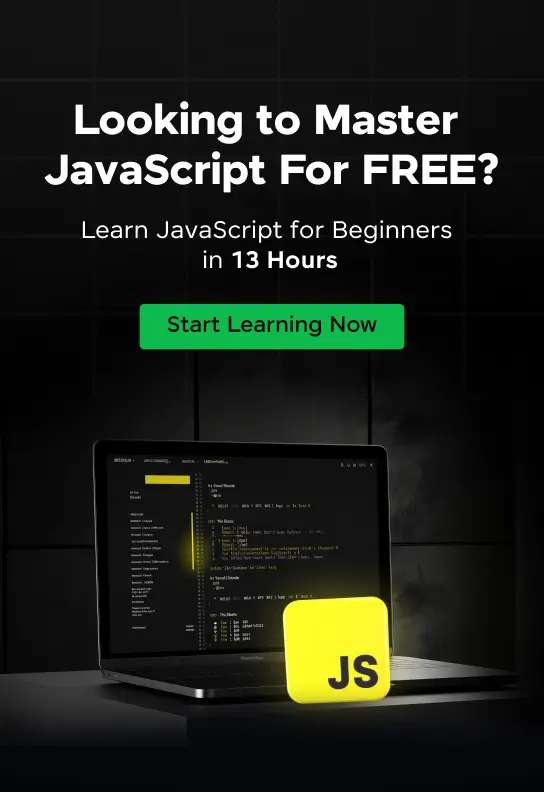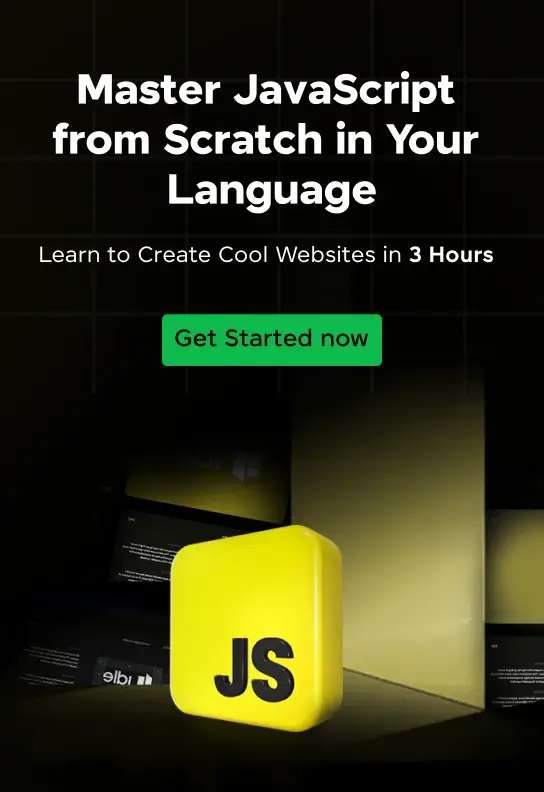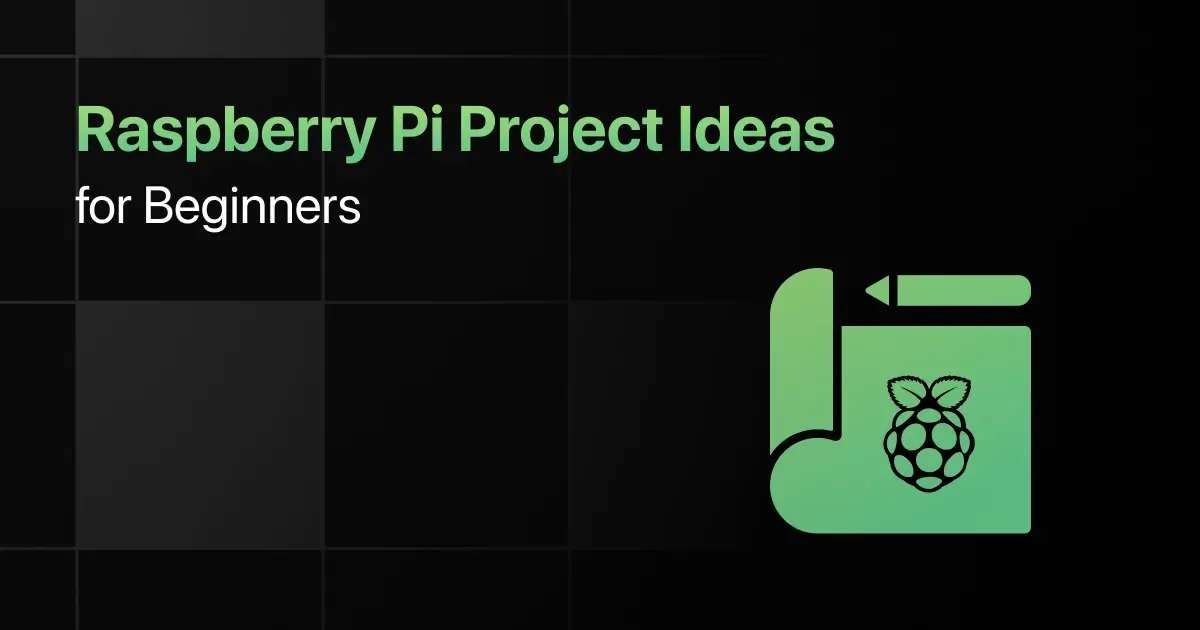Best Websites to Learn JavaScript
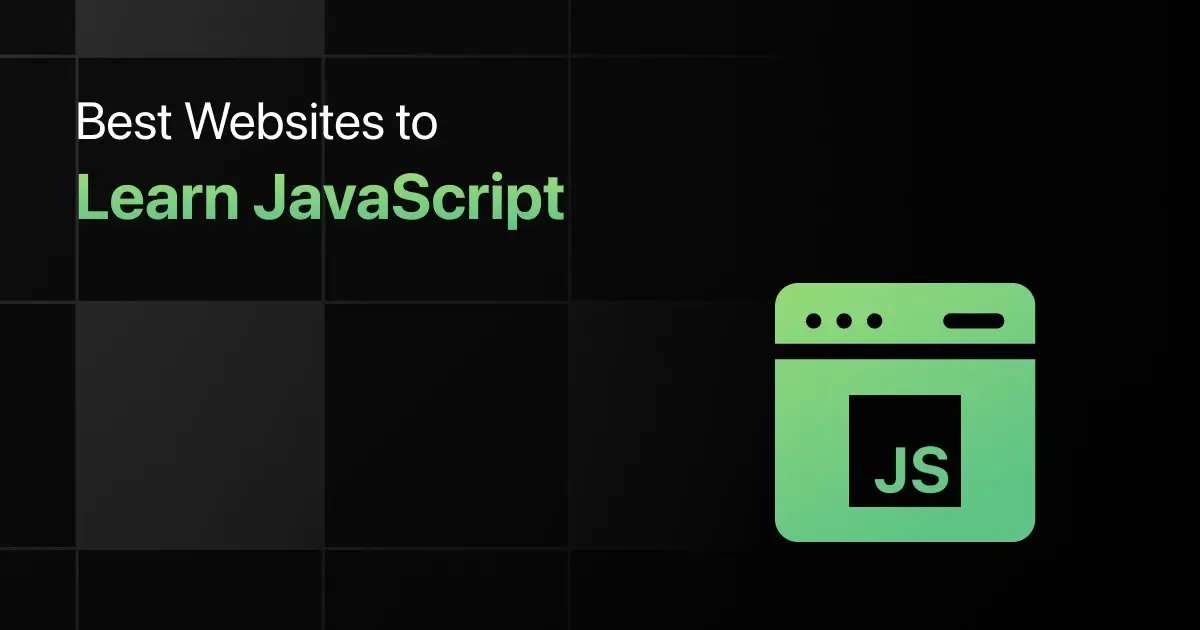
Thinking about adding some interactive flair to websites and looking for a cost-effective way to learn?
Check out the best websites to learn JavaScript for free, where you can gain the skills to bring web pages to life without spending a rupee.
10 Best Websites for JavaScript – Overview
Here’s an overview of the top 10 websites to learn JavaScript:
| S.No. | Website Name | Course Duration | Pricing | Certification | Website Link |
|---|---|---|---|---|---|
| 1 | GUVI | 13 hours | Free | Yes | Visit Now |
| 2 | Coursera | 9 hours | Freemium | Yes | Visit Now |
| 3 | MDN Web Docs | Self-paced | Free | No | Visit Now |
| 4 | Codecademy | 15 hours | Freemium | Yes | Visit Now |
| 5 | JavaScript.info | Self-paced | Free | No | Visit Now |
| 6 | Udemy | 33 hours | Paid | Yes | Visit Now |
| 7 | The Odin Project | Self-paced | Free | No | Visit Now |
| 8 | freeCodeCamp | 7 hours | Free | No | Visit Now |
| 9 | Learn JavaScript | Self-paced | Freemium | No | Visit Now |
| 10 | JavaScript 30 | 30 days | Free | No | Visit Now |
Best Websites to Learn JavaScript Programming for Beginners
Below is the list of best websites to learn JavaScript for beginners:
1. GUVI
GUVI’s “JavaScript for Beginners” course is an ideal starting point for those new to programming or looking to learn JavaScript, a key language in web development. This course is designed to teach all the core concepts of programming using JavaScript, enabling learners to create dynamic and interactive web content like applications and browsers.
The course covers a range of topics, including the working of JavaScript, its benefits, variables, objects, operators, functions, and more advanced topics like closures, hoisting, and classes. The course also includes updates on the latest JavaScript concepts introduced in ES6. Upon completion, learners can build various real-time projects, enhancing their portfolio and showcasing their skills to potential employers.
The course offers a globally recognized “National Skill Development Corporation Certification” from NSDC at a nominal fee.
Course Diversity: Covers JavaScript programming basics to advanced concepts.
Learning Style: Self-paced online learning with practical exercises.
Pricing Structure: Free access to the course, fee for certification.
Platform Usability: User-friendly interface with easy access to course modules.
Certifications Offered: Globally recognized NSDC certification available for a fee.
Language Options: Primarily in English.
Instructor Expertise: Course designed and delivered by industry experts.
Duration of Courses: 13 hours of recorded content.
Community and Support: Access to a dedicated forum for doubt clearance and a community of learners.
2. Coursera
The “Interactivity with JavaScript” course on Coursera, offered by the University of Michigan, is designed to enhance web development skills by incorporating interactive elements using JavaScript. This course is part of the “Web Design for Everybody: Basics of Web Development & Coding Specialization” and is suitable for beginners.
It covers how JavaScript is used to react to user events, enabling students to write their own JavaScript code to make web pages interactive. The course also addresses how JavaScript can introduce accessibility issues. Key skills taught include using the Document Object Model (DOM) for web development and understanding JavaScript’s role in creating dynamic web content.
The course is structured into four modules, each focusing on different aspects of JavaScript, culminating in a project where students create an interactive HTML5 form.
Course Diversity: Covers JavaScript basics, DOM manipulation, and creating interactive web pages.
Learning Style: Structured learning with hands-on projects and quizzes.
Pricing Structure: Accessible through Coursera subscription, financial aid available.
Platform Usability: User-friendly platform with courses structured for easy navigation and progress tracking.
Certifications Offered: Shareable certificate available upon completion.
Language Options: Content available in English with subtitles in 20 languages.
Instructor Expertise: Courses taught by experienced instructors from the University of Michigan.
Duration of Courses: Approximately 9 hours, self-paced learning.
Community and Support: Access to Coursera’s community of learners and developers.
3. MDN Web Docs
The Mozilla Developer Network (MDN) provides an extensive and authoritative resource on JavaScript, offering in-depth documentation and tutorials for web developers. The JavaScript section on MDN is a comprehensive guide that covers the language’s core features and capabilities.
It includes tutorials for complete beginners, intermediate, and advanced programmers, ensuring a complete understanding of JavaScript, regardless of the learner’s prior experience. The content ranges from basic syntax and programming constructs to more complex topics like object-oriented programming, asynchronous programming, and handling web APIs.
MDN’s JavaScript documentation is known for its clarity, accuracy, and practical examples, making it a trusted resource for developers worldwide. It also delves into the latest ECMAScript standards, ensuring developers stay up-to-date with modern JavaScript practices.
Course Diversity: Covers JavaScript from basic syntax to advanced programming concepts.
Learning Style: In-depth documentation with interactive examples and tutorials.
Pricing Structure: Free access to all content.
Platform Usability: Well-organized and easy to navigate.
Certifications Offered: Does not offer certifications.
Language Options: Content primarily in English.
Instructor Expertise: Content developed by web development experts.
Duration of Courses: Self-paced, time varies depending on the learner’s schedule.
Community and Support: Does not specify community or support options.
4. Codecademy
Codecademy’s “Learn JavaScript” course is an interactive and comprehensive program designed to introduce learners to JavaScript, a key language in web development.
It covers a range of topics, including JavaScript data types, built-in methods, and variables, as well as more advanced concepts like conditionals, functions, scope, arrays, and loops. The course structure includes 11 lessons, 12 projects, and 8 quizzes, ensuring a hands-on learning experience.
Skills gained include building core programming concepts, learning object-oriented concepts, and reading and writing JavaScript. The course is part of Codecademy’s interactive learning platform, which includes AI-assisted learning tools and a mobile IDE, allowing learners to code directly in their browser.
Course Diversity: Covers JavaScript basics to advanced concepts, including object-oriented programming.
Learning Style: Interactive, hands-on learning with projects and quizzes.
Pricing Structure: Included with Codecademy’s paid plans.
Platform Usability: User-friendly, with AI-assisted learning and a mobile IDE.
Certifications Offered: Certificate of completion included with paid plans.
Language Options: Course content primarily in English.
Instructor Expertise: Developed by experienced programmers and educators.
Duration of Courses: Approximately 15 hours to complete.
Community and Support: Access to Codecademy’s community and learning resources.
5. JavaScript.info
JavaScript.info is an extensive online resource dedicated to teaching JavaScript, offering a modern approach to learning this essential web development language.
The site, titled “The Modern JavaScript Tutorial,” is structured into three main parts: the JavaScript language, browser-related scripting, and additional thematic articles.
The tutorials begin with an introduction to JavaScript, covering fundamentals like syntax, variables, data types, and operators. It then progresses to more complex subjects such as object-oriented programming, error handling, and asynchronous programming. The site also delves into browser-specific scripting, teaching how to interact with the Document Object Model (DOM) and handle events.
Course Diversity: Covers JavaScript from basic syntax to advanced programming concepts.
Learning Style: Text-based tutorials with examples and code snippets.
Pricing Structure: Free access to all tutorial content.
Platform Usability: Well-organized and easy to navigate.
Certifications Offered: Does not specify certifications for this tutorial.
Language Options: Content primarily in English, with versions available in other languages.
Instructor Expertise: Content developed by experienced JavaScript professionals.
Duration of Courses: Self-paced, time varies depending on the learner’s schedule.
Community and Support: Does not specify community or support options.
6. Udemy
“The Complete JavaScript Course” on Udemy is a comprehensive training program designed to take learners from beginner to professional JavaScript developer.
This course, with over 33 hours of training, quizzes, and challenges, is one of the most thorough offerings on the platform. It covers all the essential topics needed for full-stack development, including HTML, CSS, React, Node.js, PostgreSQL, GitHub, and NPM/NPM. The course is structured to provide a deep understanding of JavaScript, ensuring learners are well-equipped to build apps, websites, and projects.
Course Diversity: Covers JavaScript and full-stack development essentials.
Learning Style: Video-based learning with quizzes and practical challenges.
Pricing Structure: Individually priced, often with discounts.
Platform Usability: User-friendly interface with easy access to course materials.
Certifications Offered: Certificate of completion provided.
Language Options: Content primarily in English.
Instructor Expertise: Course created by experienced web development instructors.
Duration of Courses: Over 33 hours of training.
Community and Support: Udemy platform offers Q&A sections and community forums.
7. The Odin Project
The Odin Project’s JavaScript course, part of their Full Stack JavaScript path, is designed to make websites dynamic and interactive. This course is ideal for learners who want to create features and stand-alone applications using JavaScript.
It includes comprehensive modules on manipulating the DOM, applying object-oriented programming principles, and fetching real-world data using APIs. The course structure encompasses a variety of projects, such as building a library, creating a Tic Tac Toe game, and developing a weather app.
These projects are aimed at teaching learners how to use JavaScript in practical scenarios, enhancing their understanding of asynchronous programming, working with APIs, and implementing data structures and algorithms.
Course Diversity: Covers JavaScript fundamentals, DOM manipulation, OOP principles, and API usage.
Learning Style: Project-based learning with real-world applications.
Pricing Structure: Free access to all course content.
Platform Usability: Well-organized and community-driven platform.
Certifications Offered: Does not specify certifications for this course.
Language Options: Content primarily in English.
Instructor Expertise: Course content developed by experienced web developers.
Duration of Courses: Self-paced, varies depending on the learner’s schedule.
Community and Support: Strong community support with forums and collaboration opportunities.
8. freeCodeCamp
The “Full JavaScript Course for Beginners” offered by freeCodeCamp is a comprehensive 7-hour course available on their YouTube channel. Created by Per Borgen, the founder of Scrimba.com, this course is designed to build a strong foundation in JavaScript for beginners.
It is structured around 143 interactive challenges, encouraging learners to actively code and build their JavaScript muscle memory. The course is divided into several sections, each focusing on different aspects of JavaScript, starting with the basics and progressing to more complex topics.
These include building a passenger counter app, understanding the Document Object Model (DOM), working with strings and numbers, and creating a save feature. The course also includes a practical project where learners build a Blackjack game, providing hands-on experience with JavaScript.
Course Diversity: Covers JavaScript basics, DOM manipulation, and game development.
Learning Style: Interactive challenges and project-based learning.
Pricing Structure: Completely free.
Platform Usability: Accessible on YouTube, easy to follow along.
Certifications Offered: Does not specify certifications for this course.
Language Options: Content available in English.
Instructor Expertise: Course created by Per Borgen, an experienced developer and educator.
Duration of Courses: 7 hours of comprehensive content.
Community and Support: Access to freeCodeCamp’s community and learning resources.
9. Learn JavaScript
Learn JavaScript Online is an interactive and comprehensive platform designed to teach modern JavaScript from scratch. The course is suitable for beginners, offering a step-by-step approach to learning JavaScript (ES2015+).
It includes 77 free lessons, challenges, and projects, with additional content available for Pro account users. The course covers a wide array of topics, including arrays, functions, arrow functions, destructuring, objects, classes, asynchronous logic, and working with real APIs. It also delves into advanced JavaScript concepts like promises, fetch, async/await, and DOM manipulation.
The learning experience is enhanced with a separate flashcards app for spaced repetition, a proven method for effective learning.
Course Diversity: Covers modern JavaScript fundamentals and advanced concepts.
Learning Style: Interactive lessons with practical challenges in the browser.
Pricing Structure: Free trial available; Pro account unlocks additional content for 5 years.
Platform Usability: User-friendly, designed for interactive learning.
Certifications Offered: Does not specify certifications for this course.
Language Options: Content primarily in English.
Instructor Expertise: Created by Jad Joubran, a recognized expert in web development.
Duration of Courses: Self-paced with 77 lessons and additional Pro content.
Community and Support: Does not specify community or support options.
10. JavaScript 30
JavaScript30 is a unique and engaging online coding challenge that focuses on building 30 things with vanilla JavaScript in 30 days.
The course is free and offers 30 tutorials, each focusing on different aspects of JavaScript. It emphasizes learning by doing, without relying on frameworks, compilers, libraries, or boilerplate code. The projects range from creating a JavaScript drum kit to building an interactive comment section, making it an excellent resource for both beginners and experienced developers.
JavaScript30 is particularly beneficial for those looking to strengthen their understanding of JavaScript fundamentals, DOM manipulation, and creative coding techniques.
Course Diversity: 30 different projects covering various JavaScript concepts and applications.
Learning Style: Hands-on, project-based learning with video tutorials.
Pricing Structure: Completely free.
Platform Usability: Straightforward and accessible, suitable for all skill levels.
Certifications Offered: Does not offer certifications.
Language Options: Content primarily in English.
Instructor Expertise: Created by Wes Bos, an experienced web developer and educator.
Duration of Courses: 30 days of coding challenges.
Community and Support: Does not specify community or support options.
Final Words
These websites offer an excellent starting point for anyone eager to learn JavaScript, providing a range of interactive lessons and projects. They make learning this essential web programming language engaging, perfect for beginners and those looking to enhance their skills.
Keep checking this article as we will keep updating this space as more websites make space in the heart and study schedule of students preparing for placements and competitive exams.
Explore More JavaScript Resources
- JavaScript Practice Websites
- JavaScript YouTube Channels
- JavaScript Project Ideas
- JavaScript Apps
- JavaScript IDEs
- JavaScript MCQs
Explore More Websites
- Python
- Java
- Coding
- C++
- C Programming
- SQL
- Data Science
- HTML & CSS
- Web Development
- Data Structures and Algorithms
- AI & Machine Learning
- Ethical Hacking
- Android Development
- React JS
- Game Development
- Competitive Programming
- Digital Marketing
- Tableau
- DBMS
- R Programming
- PHP
- Cyber Security
- Excel
- Node JS
- Data Analytics
- Bootstrap
- Cloud Computing
- Operating System
- Angular
- RPA
FAQs
The best websites for learning JavaScript are:
- GUVI
- Coursera
- MDN Web Docs
- Codecademy
- JavaScript.info
- Udemy
- freeCodeCamp
GUVI, MDN Web Docs, JavaScript.info, The Odin Project, freeCodeCamp, Learn JavaScript, JavaScript 30 are some free Javascript learning websites along with certifications.
You should choose a website for learning JavaScript because they offer flexibility and have a variety of learning resources. They cater to different learning styles with interactive tutorials, video lectures, and hands-on exercises.
You can choose the right website for learning JavaScript by considering factors like course content quality, learning style compatibility (videos, interactive exercises), instructor expertise, community support, and pricing.
Yes, beginners can effectively learn JavaScript through websites. Many platforms offer beginner-friendly courses that start with basics and gradually progress to more complex topics.
Yes, some websites like Coursera and JavaScript.info provide JavaScript learning content in multiple languages and subtitles.
Related Posts
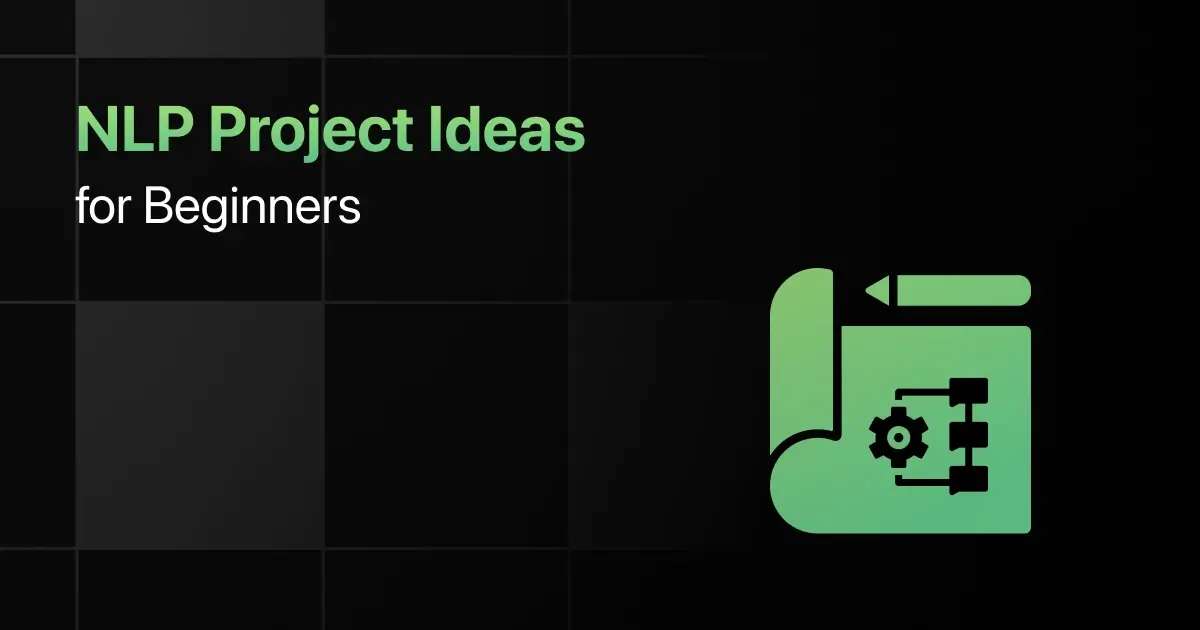


Golang Interview Questions
Are you preparing for your first Golang interview and wondering what questions you might face? Understanding the key Golang interview questions …
Warning: Undefined variable $post_id in /var/www/wordpress/wp-content/themes/placementpreparation/template-parts/popup-zenlite.php on line 1050

